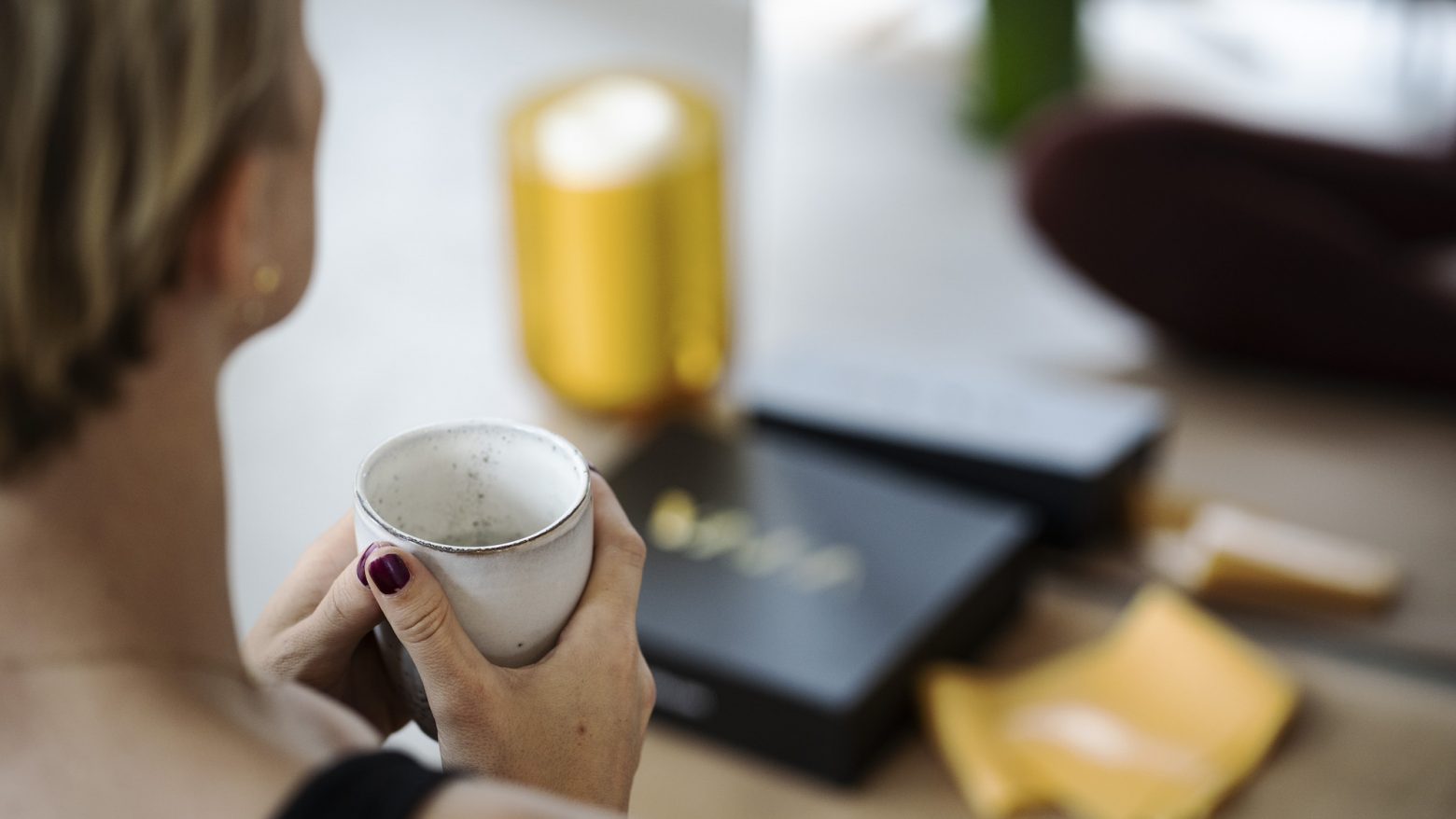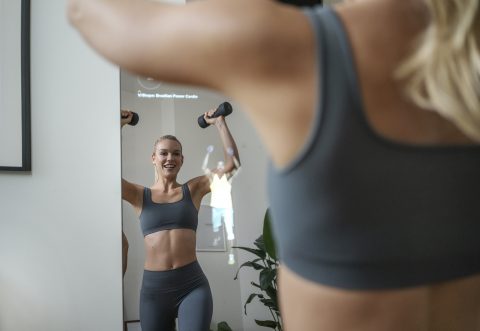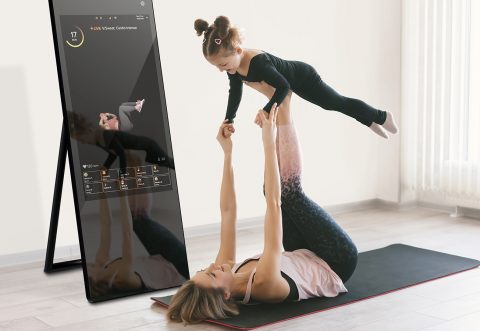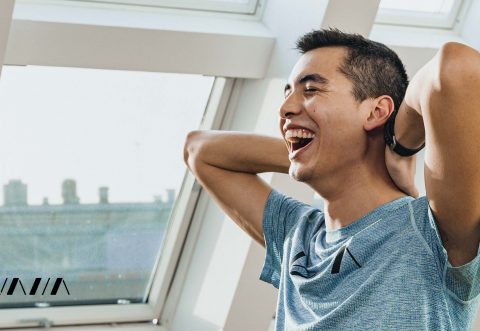1. Relaxation starts with your mindset
Relaxation starts in your head. Because its biggest opponent – stress – most times correlates with your thinking. How we react to things largely influences how many stress signals our body sends. If you take every conflict at work to heart, you’ll find it even more challenging to relax and switch off in your free time. But there are simple tricks that help you cultivate a more relaxed attitude. For example, a 5-minute meditation. When your thoughts go round in circles, simply close your eyes and concentrate on your breath or a self-chosen mantra. This will allow you to clear your thoughts and deal with problems more calmly afterwards. Meditation is also a great tool to incorporate into your bedtime routine. If you have trouble falling asleep due to an overactive mind, make it a habit to meditate before going to bed and see how the quality of your sleep drastically improves over time.
2. Exercise relieves stress
From an evolutionary perspective, our bodies still respond to stress like our earliest ancestors did: Stress hormones like adrenaline and cortisol are released, our heart beats faster, breathing becomes shallow, and our muscles tense up. Useful when you have to fight a bear or flee from a sabre-toothed tiger. But our fight-or-flight response is less helpful in modern office life, where our stressors are called home-care of the kids, zoom meetings or project deadlines. The consequences: When we experience daily stress, we build up chronically elevated levels of stress hormones, which in the long run can lead to serious health issues such as high blood pressure, sleep disorders or burnout. But fortunately, we always have a tool at our fingertips to deal with this issue: Exercise. Exercise boosts our feel-good hormones like endorphin and serotonin, which not only neutralize the pent-up stress but also boost immunity and enable our bodies to thrive. Which sport you choose to rebalance your body is up to you. Some love the power kick of HIIT Training or a Boxing class. However, calmer movement routines like Yoga are just as effective. No matter what type of exercise you pick, the most important thing is that you enjoy it!
3. Digital detox and single-tasking
The boundaries between work and free time are becoming increasingly blurred, especially when working from home. Being constantly available and on calls, we also spend most of our free time in front of screens. Going the other way and spending some technology-free time can therefore be highly liberating. So instead of checking your phone every 2 minutes, take some time to put all electronic devices aside and consciously dedicate yourself to doing one thing at a time – an ideal opportunity to cultivate mindfulness. Take the time to engage in a conversation, replenish your energy with a walk through nature, or simply sip a cup of tea without distraction. Conscious single-tasking decelerates our daily routine and makes us more receptive towards the small glorious moments of life.
4. There’s strength in rest – but also in exertion
“Relaxation”: this immediately evokes the image of lying comfortably on the couch, some snacks at hand, while your favourite TV series is on. However, depending on your circumstances, going the opposite direction can sometimes be even more effective: be active and challenge yourself! No matter if it’s playing basketball with friends or learning a new language: a self-chosen challenge can fire up the feel-good hormones just as much as a day at the spa. In addition, setting yourself challenges and continuing to learn builds your confidence and emotional resilience. When thinking of ways to relax, simply ask yourself: What do I need right now? Rest and solitude or action and adrenaline? The balance is the key!
5. Say “no”: relaxation needs boundaries
We all want to be the perfect friend, spouse or colleague. So turning down requests from people we care about is particularly difficult for most of us. As a result, we often fill our schedules with tasks that overwhelm us. Learning to say no is therefore crucial for a balanced life. If you still find it difficult to set clear boundaries, ask yourself why. Maybe it is because of an unconscious desire to always please everyone, to never cause trouble or disappointment? Simply acknowledging the underlying reasons can make it easier to say no and reclaim your time in the future. And don’t forget: Every “no” creates space for the things that really matter to you.
6. Relaxation is individual
With all this advice, it’s important to remember one thing: what we consider as relaxing is highly individual. However, as an orientation, it can be said that it often occurs in contrast to everyday life. You sit 10 hours a day in front of a computer? Then a stroll around the block or a weekend bike tour might be just what you need. You have a physically demanding job? Recharge your batteries while relaxing on the couch in the evening. No matter what your version of unwinding looks like, one fact holds true for all of us: Relaxation is not a luxury activity that we should only indulge in twice a year on vacation. Rest is an essential part of a balanced lifestyle. Just as professional athletes plan fixed regeneration phases, we should also schedule time for relaxation in our busy routines. This is how we reduce stress, avoid chronic exhaustion and lead happier, healthier, and more fulfilled lives!



